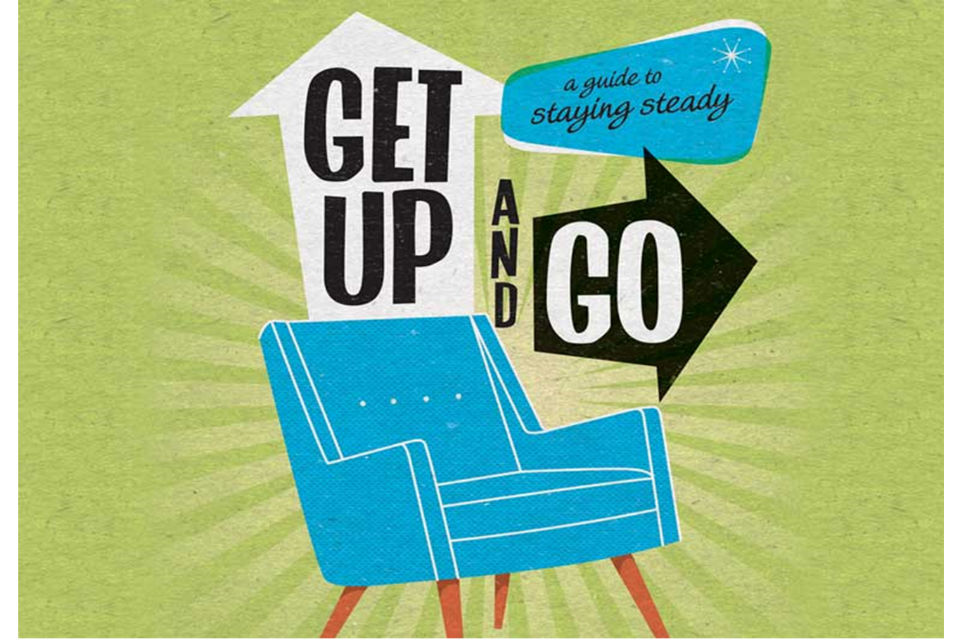Unknown Facts About Dementia Fall Risk
Unknown Facts About Dementia Fall Risk
Blog Article
Facts About Dementia Fall Risk Revealed
Table of ContentsWhat Does Dementia Fall Risk Do?Getting The Dementia Fall Risk To WorkThe Only Guide for Dementia Fall RiskThe Of Dementia Fall RiskThe Single Strategy To Use For Dementia Fall Risk
Analyzing loss threat aids the whole health care team develop a more secure environment for each and every person. Make certain that there is a marked area in your medical charting system where staff can document/reference ratings and document appropriate notes connected to drop avoidance. The Johns Hopkins Loss Risk Analysis Tool is among several devices your personnel can use to aid stop negative medical occasions.Person falls in medical facilities prevail and devastating unfavorable occasions that persist regardless of decades of initiative to minimize them. Improving interaction across the examining nurse, treatment group, client, and person's most involved buddies and family members may enhance loss prevention initiatives. A team at Brigham and Women's Medical facility in Boston, Massachusetts, looked for to create a standardized loss avoidance program that centered around boosted communication and individual and family members interaction.

The technology team emphasized that successful implementation relies on individual and staff buy-in, combination of the program right into existing process, and integrity to program procedures. The group kept in mind that they are coming to grips with exactly how to ensure connection in program execution throughout durations of situation. Throughout the COVID-19 pandemic, for instance, a boost in inpatient drops was related to restrictions in client involvement together with restrictions on visitation.
The 8-Second Trick For Dementia Fall Risk
These events are commonly considered preventable. To apply the treatment, companies require the following: Accessibility to Autumn TIPS sources Loss pointers training and re-training for nursing and non-nursing team, consisting of new nurses Nursing workflows that enable patient and family involvement to perform the drops evaluation, make sure use of the prevention strategy, and perform patient-level audits.
The outcomes can be highly detrimental, frequently accelerating patient decrease and triggering longer healthcare facility remains. One study estimated keeps boosted an additional 12 in-patient days after a patient loss. The Autumn TIPS Program is based upon engaging clients and their family/loved ones across three primary procedures: evaluation, personalized preventative interventions, and bookkeeping to ensure that people are participated in the three-step fall avoidance process.
The person evaluation is based on the Morse Loss Scale, which is a confirmed autumn threat evaluation tool for in-patient health center settings. The range includes the 6 most common reasons individuals in healthcare facilities fall: the individual autumn history, risky problems (including polypharmacy), use IVs and other exterior devices, psychological status, gait, and flexibility.
Each risk variable relate to click to investigate one or even more workable evidence-based interventions. The registered nurse creates a plan that includes the interventions and is visible to the treatment team, individual, and family members on a laminated poster or printed aesthetic help. Nurses establish the strategy while meeting with the person and the client's family members.
The Single Strategy To Use For Dementia Fall Risk
The poster functions as an interaction device with other members of the individual's treatment team. Dementia Fall Risk. The audit element of the program consists of analyzing the client's understanding of their danger elements and avoidance plan at the system and health center levels. Nurse champions conduct at the very least 5 private interviews a month with patients and their families to look for understanding of the autumn prevention plan

An estimated 30% of these falls lead to injuries, which can range in severity. Unlike other unfavorable events that require a standardized professional feedback, autumn prevention depends highly on the needs of the patient. Including the input of individuals who recognize the individual finest enables greater customization. This approach has actually confirmed to be more effective than fall prevention programs that are based primarily on the production of a danger score and/or are not customizable.
Dementia Fall Risk Can Be Fun For Anyone

Based on auditing outcomes, one site had 86% conformity and 2 sites had over 95% conformity. A cost-benefit analysis of the Autumn ideas program in 8 medical facilities approximated that the program price $0.88 per client to carry out and caused cost savings of $8,500 per 1000 patient-days in straight prices related to the prevention of 567 tips over 3 years and 8 months.
According to the advancement group, companies interested in carrying out the program needs to conduct a readiness evaluation and drops avoidance voids evaluation. 8 Additionally, organizations ought to make sure the essential framework and operations for implementation and develop an application plan. If one exists, the organization's Autumn Avoidance Job Pressure need to be associated with preparation.
Everything about Dementia Fall Risk
To start, companies must make sure completion of training modules by nurses and nursing assistants - Dementia Fall Risk. Healthcare facility team need to examine, based on the needs of a medical facility, whether to use an electronic Discover More wellness document printout or paper version of the loss avoidance plan. Implementing teams need to hire and click over here train nurse champs and develop procedures for bookkeeping and coverage on autumn information
Team need to be entailed in the procedure of upgrading the workflow to involve individuals and family in the assessment and avoidance strategy process. Solution needs to remain in location to ensure that systems can recognize why a fall happened and remediate the reason. Much more specifically, nurses need to have channels to offer recurring feedback to both team and unit management so they can readjust and enhance loss prevention operations and communicate systemic troubles.
Report this page